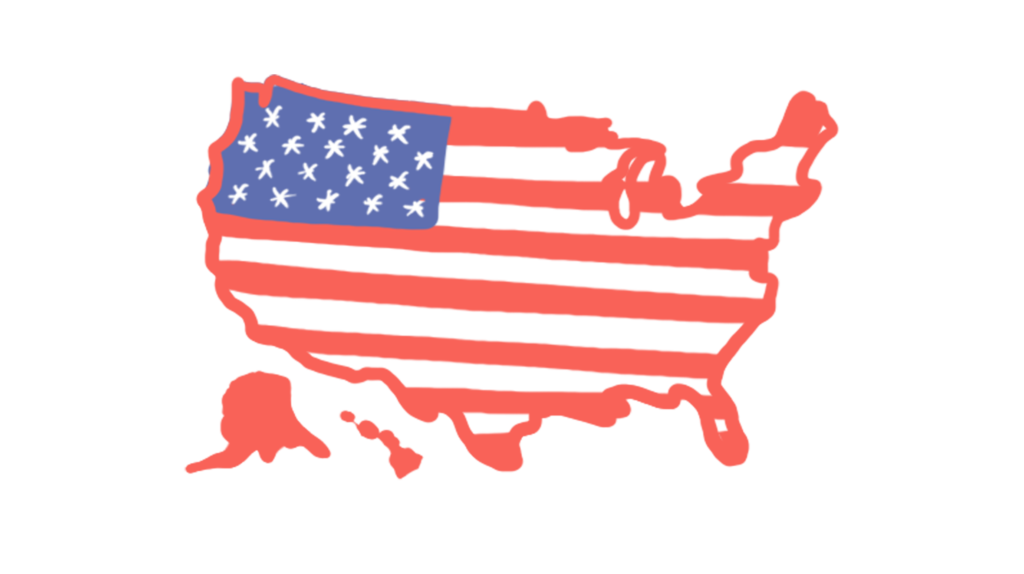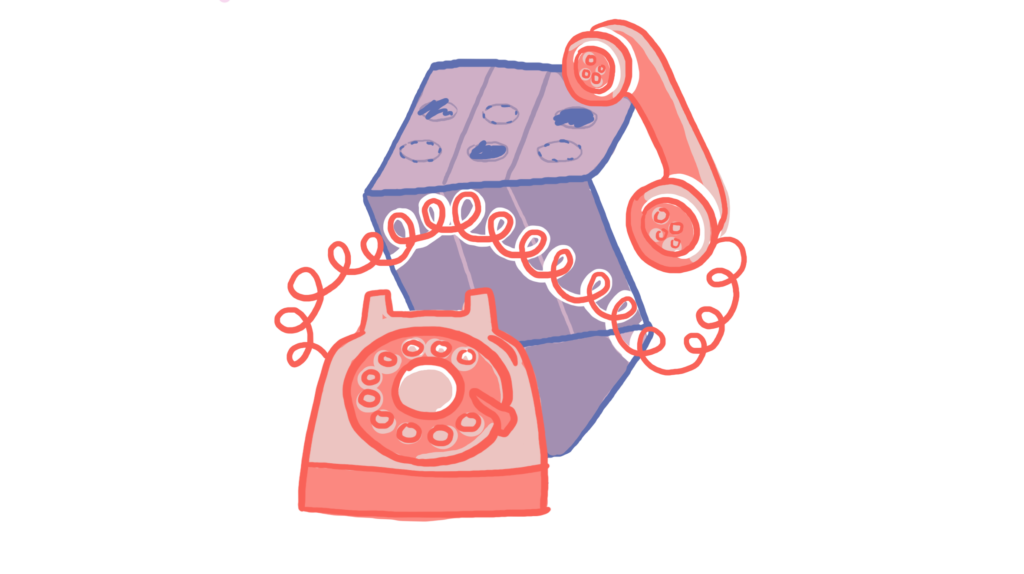
Where Does it Matter Most?
Being from a U.S. territory means that while I am directly impacted by U.S. elections, to vote in the United States means that I cannot vote back home in local elections. Americans can vote for governor, mayor and everything else around them, while also having a say in the presidential elections — we can’t. When I chose to come to college in the States, I had to make the decision about where to vote. In Puerto Rico, in the first elections since Governor Ricardo Rosselló was ousted from office, or in the United States, where I could help vote Trump out. I could vote in Connecticut, where I couldn’t even tell you the governor’s name, in order to vote out a president whose actions affect my local politics and communities. Or I could vote back home, where I hear talk of our local politics over dinner and at family gatherings. Which election affects us more? Which one does my vote count most in? I couldn’t figure it out, and I was frustrated that this was even a decision I had to make. If I’m directly impacted by both, why shouldn’t I be able to vote for both?
I chose to vote in Puerto Rico. I realized that voting for local elections in a state I started living in this year wasn’t fair to people living here who are directly impacted by and invested in the decisions of local officials. It still feels wrong at times, like I’m somehow contributing to Trump’s possible reelection. But if I had voted in the States, I would feel the same about Puerto Rican elections, as if I’m allowing corrupt officials to be put back in power. I couldn’t choose an election that wouldn’t affect me or someone I love — it was an impossible Catch-22.
Ángela Pérez | angela.perez@yale.edu
Ballots and Bonding

Dora Guo
New Jersey sent mail-in ballots to all registered voters. My father threw them out — he thought they were spam mail. After a lot of phone calls, signatures and promises that we wouldn’t commit fraud, the state sent us two new ballots each — that seemed a little weird, but considering both my father and I fucked up and had to use our second copies, I’m happy the government factored in our incompetence.
My parents and I sat around our kitchen table arguing, not over who to vote for — we’d already done plenty of that — but over how to fill out the ballots. My 16-year-old brother even came downstairs to make sure we all voted to legalize marijuana — it’s lovely to see young people stand for their political beliefs.
During quarantine, we’ve all been stuck in the same house together, yet we barely interact. I complete my schoolwork in the basement, my brother naps through class in his room, my mom attempts to complete every series on Netflix in the living room and my father works nights, so he’s either asleep or out of the house. Civic engagement forced us to engage with one another. Next election, we’ll probably be back to secret ballots and voting booths, but it was nice to have some guidance during my loss of voter virginity. Even in 2020, politics can bring people together.
Jordan Fitzgerald | jordan.fitzgerald@yale.edu
Vote Because I Can’t

Dora Guo
“Don’t forget to register!” “HAVE YOU SENT IN YOUR BALLOT YET?” “This is the election of a lifetime.”
These messages reach out from friends, organizations and my Instagram feed. I get it and I agree. People should register, they should vote and no one who is eligible should be prevented.
I am not one of those people, however. This November I will be just a bit too young.
Once I’m 18, fret not, I will head straight to one of the many resources that make it more accessible for people of my generation to vote. Maybe even the one Kylie advertised. My ballot will be requested as early as possible, and I eagerly await the chance to sort through the candidates, fill in the right bubbles, sign the inside but not the outside — or is it the other way? — and eventually push that ballot into the mailbox.
But, for now, that is not possible. Instead, I wait on the sidelines, watching a fight whose outcome will affect the rest of my life. I have back-row seats and no chance of being subbed in.
Maybe this is an argument to lower the voting age — that would be great. But it is most definitely a plea for everyone who can to vote. Vote for everyone who cannot vote in this election but will feel its effects for years to come. I, for one, cannot wait to be in your shoes.
Amre Proman | amre.proman@yale.edu
Worlds Away

Dora Guo
I faxed in my ballot a week ago. Some parts were straightforward — president of the United States, for example — while others were much more confusing. Buckeye Union School District Governing Board Member? No clue.
As an American citizen who grew up thousands of miles away in Hong Kong, voting for local leaders and propositions for a country that I had no real connection to was a weird experience for me. Though my grandparents may call California home, I only trade my surroundings for the golden rolling hills of El Dorado for at most a couple of weeks a year. American politics was always something that I read about on the news but didn’t ever have the chance to take part in.
Growing up in Hong Kong’s limited democracy, I didn’t often see voting in an election. Citizens couldn’t choose their leader or half the seats in the legislature, and earlier this year, when more people than ever were ready to turn out and vote, the election was postponed. Still, this fall, I had a responsibility to exercise my rights as an American — especially at a time when those around me lack the freedom to do so. As I flipped through the information pamphlets and scrolled through op-eds, I felt increasingly passionate about my choices. Finally, I had the chance to make my voice count.
Ryan Chiao | ryan.chiao@yale.edu
Tropical Voting Procedures

Dora Guo
Voting from overseas has been a trip all by itself. Starting with anxieties about which district I should be voting from (Connecticut, where I’m a student? Or Massachusetts, where I lived before moving to Taiwan?), and ending with me sending the ballots in through 7-11’s express mailing system (don’t ask me how that works, even I don’t know), this election has been stressful. My parents have never voted before, until now — we feel that this year’s results will impact us far longer than just another four years. And it’s been surreal, too. The gaps in time between each step of the process (applying for overseas, registration, filling out the returned ballot) make the simple process of voting seem like, honestly, a round of examinations. Furthermore, no one outside my house really seems to care; Taiwan doesn’t have to deal with whoever wins the American election, after all. The divide between my waking world and the world beamed to me through my phone screen is as wide as the political separation between Republicans and Democrats. At least my ballot made it across the sea.
Claire Fang | claire.fang@yale.edu
A Tale of Two Civic Duties

Dora Guo
I voted for the first time on Feb. 15, 2019. I was voting early in the Illinois midterm primary, and I couldn’t have been more excited. As I walked into my local library, my alderman (who was, to be fair, vying for my vote) high-fived me. I can honestly still smell it: the dusty carpet, the books, the classic library scent of stickers and glue. Entering, my mom announced to the whole room (the whole room being two poll workers and a random 20-something-year-old voting at a booth) that this was my first time voting. Immediately, the previously calm environment burst into applause. One of the poll workers started playing music out of her iPhone speaker. The other took a picture of my mom and me. My mom posted it on her Instagram.
I voted in my first presidential election on Oct. 30. I ordered my ballot over a month ago, but the ballot tracker said it had been stuck in Hartford for three weeks. I had my parents overnight me an emergency one and without much ceremony at all, I bubbled, signed and dated it and sent it back from Yale Station. Back at Saybrook, I hopped on a phonebanking shift and tried to encourage auto-dialed Pennsylvanians to do the same. On one call, someone told me that if I was concerned about climate change, I should move to the moon. Happy 2020!
Galia Newberger | galia.newberger@yale.edu
Flatline

Dora Guo
I was being a good friend. She knew that I hated talking on the phone. It brought out the worst of my social anxieties and insecurities. But she was organizing her first college night for her candidate, and she needed lots of volunteers. She helped me figure out the online system for calling; as we walked through the script, my palms began to gently sweat. “Don’t worry,” she said, seeing a wave of doom wash over my face. “You’re gonna do great! It’s super easy.” Then she left the Zoom, leaving me to make calls and change minds.
“Hello? Is this—”
“I was wondering how you’re planning on voting this fall.”
“Is anyone there?”
“She’s a great candidate.”
“Hello?”
Very few people let me get a word out, and those who didn’t hang up instantly told me there was no chance in hell they’d vote for a progressive female candidate. I only had time for a couple more calls.
“Hello?”
“Yes, hi, who’s this?”
“My name is Camden. Is ______ around? I’m calling to ask how she plans on voting this fall.”
“Oh.”
“Is she available?”
“She actually passed away a couple of years ago.”
Holy shit.
“Um, I’m so sorry to hear that. So sorry for calling. Have a good day!”
That was my last time phonebanking.
Camden Rider | camden.rider@yale.edu






